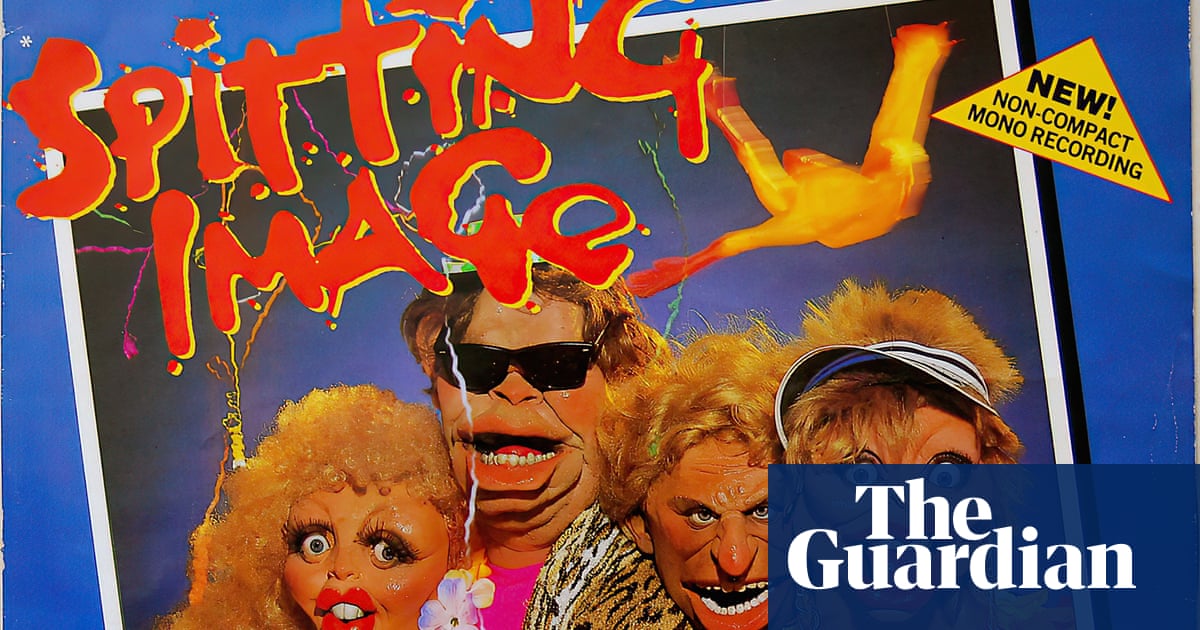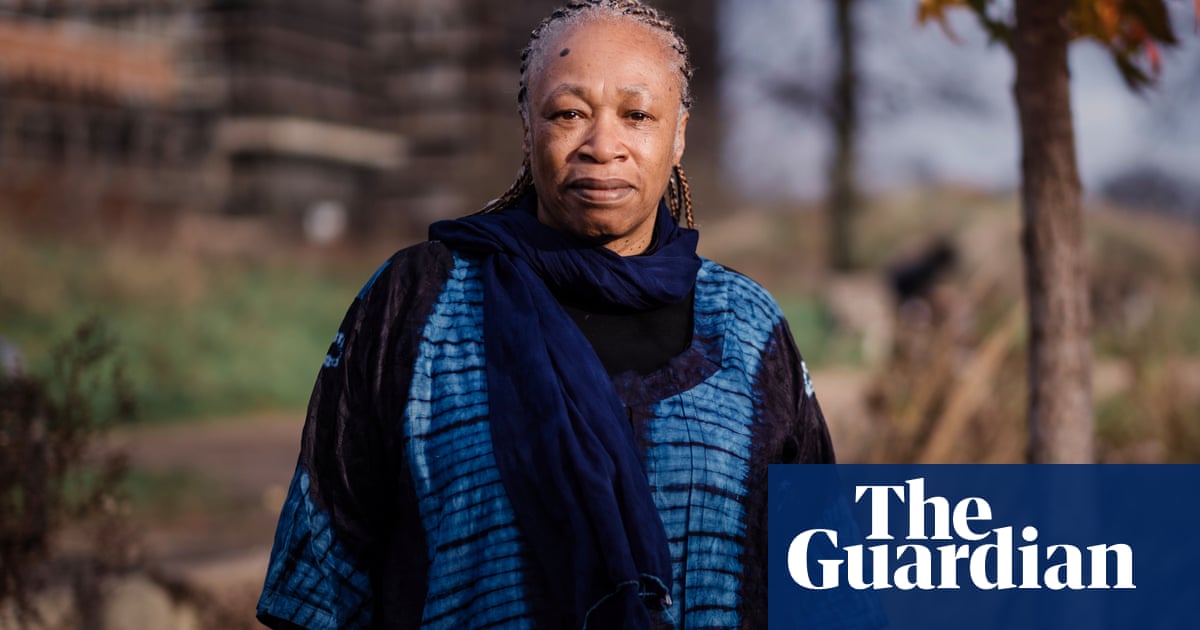
rystal Moselle has a knack for finding people. Her “intuition” first led her to run through the streets after the family of boys who would star in her 2015 Sundance Grand Jury prize-winning documentary The Wolfpack. The Californian film-maker followed the same instinct when she discovered the all-teen-girl New York skateboarding troupe called Skate Kitchen. She overheard the girls on the G train talking about tampons, so befriended them and cast them in a short film and again in 2018’s semi-scripted drama Skate Kitchen. “It’s a similar feeling to when you’re attracted to somebody,” she says in a west coast drawl. “‘OK, this is something that I am connected to.’”
Their working relationship did not end there. Based on Skate Kitchen, new series Betty is Moselle’s first foray into television. With the same girls cast as the same characters, the six episodes prioritise realism over plot points to create a subtle teen drama that focuses on the minutiae of their NYC subculture. It’s all about how these girls live, love, hope and, crucially, what they think about the hypocrisy of the world outside the skate park. As is typical of Moselle’s two empathetic full-length films, characters find joy in film-making: for this diverse gang of girls there’s power in telling their own stories and capturing their own image.
Case in point: the first episode opens on a bruised bottom, as mottled and broody as a raincloud, and the camera pans to show the ringleader Kirt (Nina Moran) proudly capture it on her phone. Scenes unfold as casually as Kirt’s attitude to life: girls trip on a ziplock bag of mushrooms in the park; nurture painful crushes on noncommittal art bros and complicated ones on cute girls before they’re “out” to their family. The show is a touching, frequently funny portrait of the exhilarating freedom of your late teens, when you delight in growing up at your own pace, rather than at the mercy of outside forces. Think Broad City meets Larry Clark’s Kids.
Originally, Moselle had no plans to follow up Skate Kitchen, but the response to the film disappointed her. Despite finding its fans, it didn’t “catch on” with audiences, or receive the wide distribution she felt it deserved. “I almost feel like society wasn’t ready yet for that story,” she says. So, when HBO approached her to turn it into a show, she realised: “Maybe it’s not finished and we’re supposed to keep going with this.”
Girl gangs are familiar territory for Moselle. “I definitely had a big group of girlfriends growing up. All the complexities of being around a big group of women, I learned at a young age.” Born in San Francisco to two inventive parents, her mother a clothing designer and father a musician, she absorbed creativity in their “crafty” home. By her late teens, she’d gravitated to film-making after her mother bought her a video camera.
Unusually in creative fields that prioritise artistic clout and minimise talk of privilege, Moselle admits her strong desire for financial stability. She didn’t want to be a struggling artist (“I grew up witnessing that with a lot of people around me in my life”). Instead, her 20s and early-30s were spent making polished commercial work. It was during that period she found the Wolfpack boys, six brothers who had spent their childhoods trapped in a Manhattan apartment by their Hare Krishna father. Moselle’s coming-of-age film connected with audiences, not only for its gripping story but for the brothers’ innocent passion for film. Moselle’s footage is cut with their own recreations of Hollywood movies, from their DIY Reservoir Dogs to a hilariously well-acted The Dark Knight, and The Wolfpack left viewers to wonder whether the brothers played macho to heal from their father’s abuse – or they simply did it for joyous escape.
Betty combines elements of all Moselle’s previous work – beautiful aesthetics, realist politics, a documentary tone, an eye for a fashion still – but was born of a process completely new to her. She was given a full writers’ room and a co-writer, Lesley Arfin (Netflix’s Love). The Skate Kitchen girls also came in to consult on the project at every step, which lends Betty an authenticity lacking in other teen shows that claim to capture the Gen Z experience: the high-budget, hyper-sexualised Euphoria or the silly seductiveness of Riverdale. “They’re always there to say: ‘This makes sense’ or, ‘No, we would never talk like that’, or ‘I would never experience it like that, this is how I’d deal with it.’” It helps that Moselle has spent years bonding with these girls, let them sleep on her couch and listened to their problems.
This level of documentation is particularly brilliant when the show imagines how #MeToo affects teenagers. Janay’s (Dede Lovelace) best friend and ex-boyfriend is accused of assault. After she defends him, she learns the specifics of the scenario from the accusing girl and realises she has told the truth. In the writers’ room, Moselle and the other female writers and producers discussed their experiences in which a friend had been accused of serious misconduct during the #MeToo movement. “You have to look at them in a different light and consider: did they do something that we have to address or not?” Yet, it was striking that Moselle’s experiences were more “disturbing” than anything the girls had been through. “It’s probably because it has to do with being passionate about something. Skateboarding is more important than getting themselves into weird situations with guys, or whatever.”
Besides, most of the girls are queer. Witty observations from their real-life dating experiences are threaded through the script – at a nail salon, Kirt makes a joke about keeping her “working fingers” short – but Moselle doesn’t consider the show sexual. “I was more worried about it not being racy enough. I think the show is quite innocent.” That innocence is found in its depiction of ride-or-die friendship. “They’re not mean girls, they don’t have this real negative point of view where they think that there’s only a small space for women to step into. They’re, like: ‘Oh, let’s make space for women.’”
Skate Kitchen was about the girls carving out an existence for women in the male-dominated world of skateboarding. In Betty, the girls take their own right to be in these spaces for granted. Moselle claims to have learned a tenacity from the girls. “I can take their point of view into the world of directing. For a long time I felt like I was one of the only women who was directing.” Moselle recounts scenarios where she was treated like a novelty: she’d go from a meeting with a client who wanted to add a female director to their roster to another who would say that unfortunately they already had a single woman on their books. “Things are changing now,” she says. “Young people are the ones who are like: ‘We’re not going to stand for this.’”
Her next project will transport viewers far from weed vapes and half-pipes. In 2021 (or this year, if the pandemic allows) she will shoot a scripted film based on a controversial music-therapy experiment her father was involved in when he worked at a psychiatric hospital. “I enjoy working with the youth but I’m very happy to move on from that. I’ve been doing projects with teenagers for 10 years now.”
As Moselle grows up – she’s now in her late-30s – so do the girls, who are notably more mature in Betty than in Skate Kitchen. Although they still skate, they have busy creative careers despite being barely out of their teens. Dede Lovelace DJs, Ajani Russell attends art school in LA and Rachelle Vinberg studied screenwriting and has gained more than 250,000 followers on Instagram. “When I first met them, we were hanging out at my house all the time, we’d watch movies and it was very innocent,” says Moselle. Now she goes to parties and will be surprised to see them there. “It’s been amazing to watch them venture out into the world and find their own parts of themselves.” Does it feel like she’ll leave the girls behind? Moselle considers this for a second: “They’ll probably leave me behind.”
Betty is available from 9 June on Sky Comedy and the streaming service Now TV












